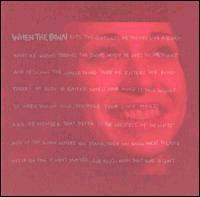
- Format: MP3

Fiona Apple may have been grouped in with the other female singer/songwriters who dominated the pop charts in 1996 and 1997, but she stood out by virtue of her grand ambitions and considerable musical sophistication. Even though her 1996 debut Tidal occasionally was hampered by naiveté, it showcased a gifted young artist in the process of finding her voice. Even so, the artistic leap between Tidal and its long-awaited 1999 sequel When the Pawn Hits... is startling. It's evident that not only have Apple's ambitions grown, so has her confidence — few artists would open themselves up to the ridicule that comes with having a 90-word poem function as the full title, but that captures the fearless feeling of the record. Apple doesn't break from the jazzy pop of Tidal on Pawn, choosing instead to refine her sound and then expand its horizons. Although there are echoes of everything from Nina Simone to Aimee Mann on the record, it's not easy to spot specific influences, because this is truly an individual work. As a songwriter, she balances her words and melodies skillfully, no longer sounding self-conscious as she crafts highly personal, slightly cryptic songs that never sound precocious or insular. With producer Jon Brion, she created the ideal arrangements for these idiosyncratic songs, finding a multi-layered sound that's simultaneously elegant and carnival-esque. As a result, Pawn is immediately grabbing, and instead of fading upon further plays, it reveals more with each listen, whether it's a lyrical turn of phrase or an unexpected twist in the arrangement; what's more, Apple has made it as rich emotionally as it is musically. That's quite a feat for any album, but it's doubly impressive since it is only the second effort by a musician who is only 22 years old.